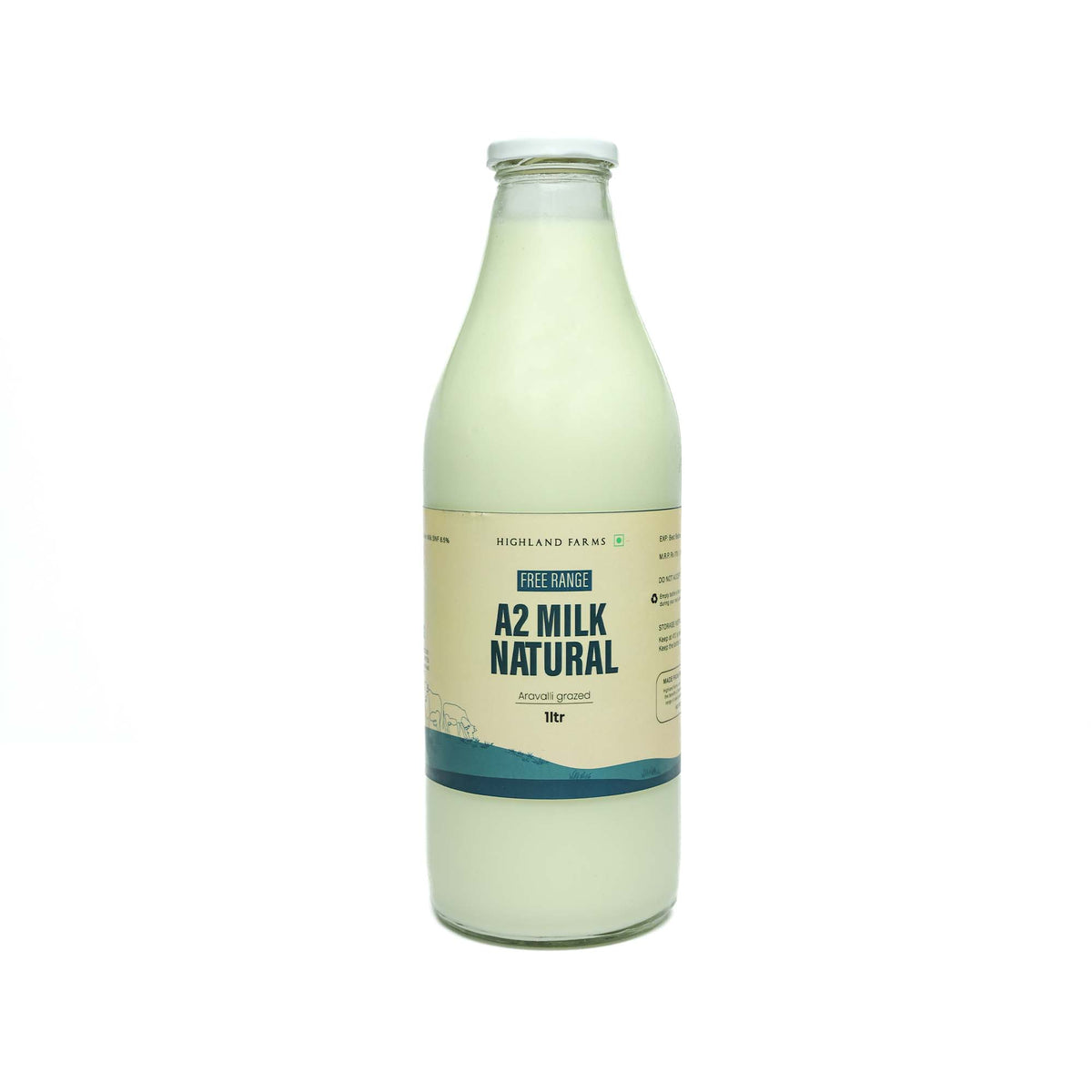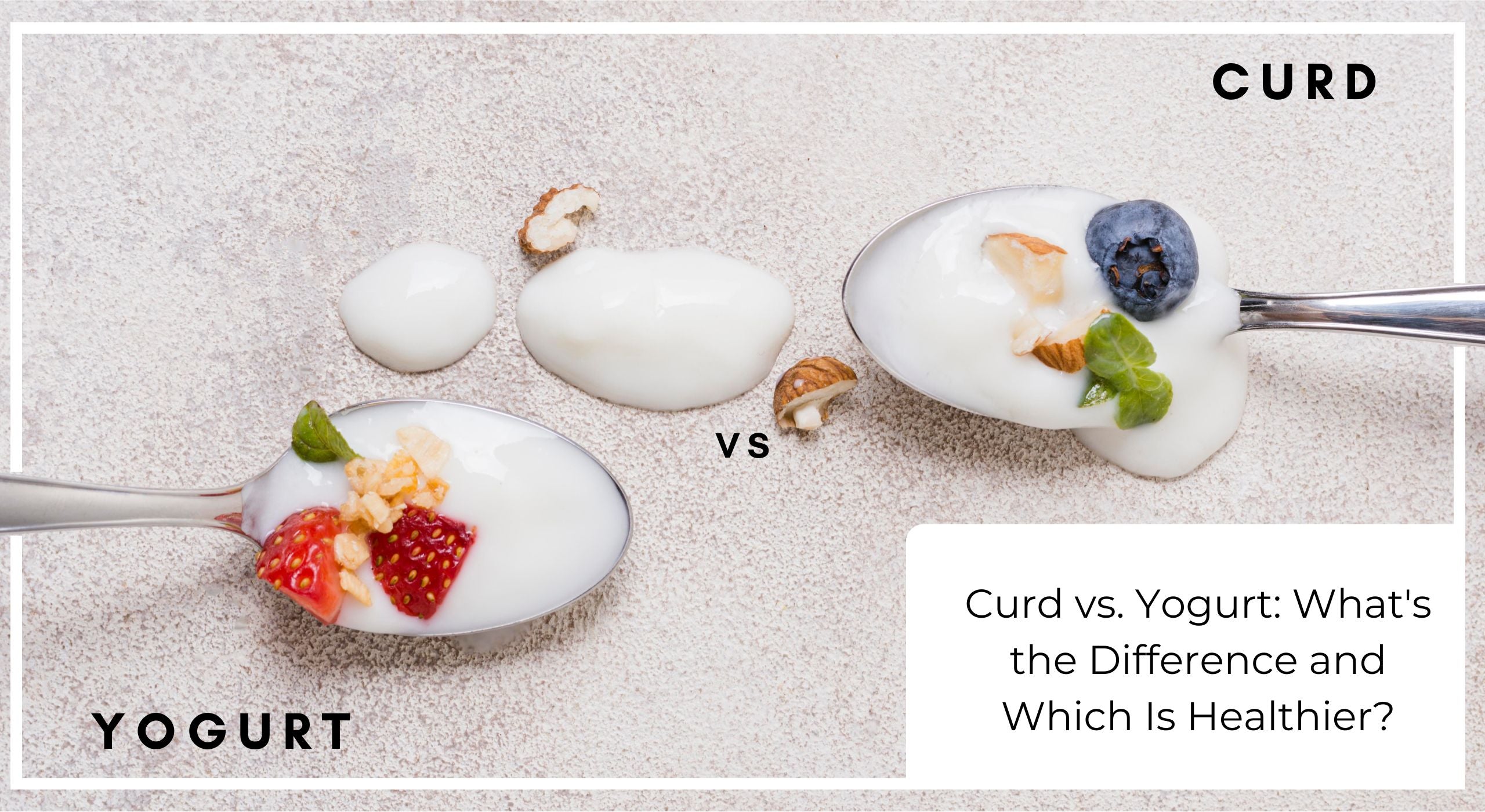There is a misconception in India that curd and yogurt are the same. But actually, they're quite different! Highland Farms explains the differences between curd and yogurt, from how they're made to what they offer in terms of health benefits. Curd is made at home with a culture that is passed down through generations, while yogurt, including Greek yogurt, is made using specific bacterial strains.
By the end of this article, you'll have better clarity, on which one might be better for your health. Whether you enjoy a daily dollop of curd in your meals or love the creamy texture of yogurt, this post will guide you to choose the best option according to your diet.
Curd

Indian households are devoted to curd. It's a dairy product made by curdling milk with a natural culture, which is often a bit of previously set curd. This traditional method uses the lactic acid bacteria present in the curd itself to ferment the milk. As the milk thickens, it transforms into curd, known for its creamy texture and tangy flavor.
Curd is not just a favorite for its taste but also for its health benefits. It is packed with calcium, vitamins B2, B12, potassium, and magnesium, all essential for maintaining healthy bones and good digestion. Regular consumption of curd can also boost your immune system, making it a staple in daily meals across India.
Unlike Greek yogurt, which is strained to remove whey and make it thicker, curd retains all parts of the milk, giving it a softer consistency. This difference in texture and the natural fermentation process makes curd a unique part of our cuisine and daily nutrition.
So, when you’ll have a spoonful of curd, remember, it's more than just a tasty addition to your meal, it's a nourishing choice that supports your health in various ways. Whether it's in a smoothie, a curry, or just on its own, curd is a versatile and healthy option for everyone.
Yogurt

Yogurt is a popular dairy product known globally, made through the fermentation of milk by specific bacteria, primarily Lactobacillus bulgaricus and Streptococcus thermophilus. These bacteria are added to heated, pasteurized milk and allowed to ferment for several hours. The fermentation process thickens the milk and gives yogurt its distinctive tangy flavor and creamy texture.
In contrast to curd, which can be made at home by adding a bit of old curd to warm milk, yogurt production is more controlled, ensuring a consistent product in terms of taste and texture. This is why yogurt is often found in a variety of forms in supermarkets, including the thicker and creamier Greek yogurt, which is strained to remove excess whey and lactose, giving it a richer texture and a higher protein content.
Yogurt is not just delicious but also packed with essential nutrients like calcium, vitamin D, and probiotics. These probiotics are good bacteria that help in improving digestion and strengthening the immune system. Whether enjoyed plain, flavored, or as a part of a recipe, yogurt offers a refreshing option for a nutritious snack or addition to meals.
These properties help in appreciating why yogurt, including Greek yogurt, has become a preferred choice for health-conscious individuals around the world, and increasingly in India too.
Differences Between Curd and Yogurt
Indian curd and yogurt often get discussed together, but they're quite different. Here’s how:
How They're Made: Curd is a staple in every Indian home, made by adding a spoonful of curd to warm milk, which then ferments overnight using the natural bacteria from the air and the curd itself. This process gives curd its unique taste and texture. Yogurt, on the other hand, is made in a more controlled environment using specific bacteria strains, which ensures every batch tastes and feels the same.
Nutrition: Both curd and yogurt are excellent sources of calcium and protein, but yogurt often has added probiotics which can aid digestion and boost the immune system. Greek yogurt, a thicker variant made by straining regular yogurt, contains about double the protein and half the sugar of regular yogurt, making it particularly beneficial for those managing their protein intake and blood sugar levels.
Taste and Texture: Curd is soft and has a mild taste, which makes it a comfort food for many Indians. Yogurt is creamier and has a tangy flavor, which works well in different kinds of dishes, both Indian and international.
Use in Cooking: Curd is used in many Indian recipes like lassi, curries, and desserts. It blends well with Indian flavors. Yogurt's thicker texture makes it great for smoothies, dips, and as a topping on dishes.
Related: Why switch to A2 Cow Milk Butter?
Health Benefits of Curd
- Curd is famous for its probiotics, the good bacteria that help keep your gut healthy. These probiotics enhance digestion and help maintain a balanced gut flora, reducing digestive issues like bloating and constipation.
- The live cultures present in curd can help strengthen your immune system. Regular consumption of curd can make you less susceptible to infections by enhancing your body’s natural defense mechanisms.
- Curd is rich in calcium and phosphorus, which are essential for strong bones and teeth. It also provides a good amount of protein, which is crucial for muscle repair and growth.
- Eating curd regularly can help lower cholesterol levels, reducing the risk of hypertension and heart disease. The probiotics in curd also contribute to maintaining heart health by preventing the absorption of cholesterol in the intestines.
- Curd can be a great food for those looking to manage or reduce their weight. The high protein content helps in keeping you full for longer periods, reducing the urge to snack on unhealthy foods.
- Consuming curd daily can also aid in managing stress and anxiety, thanks to its calming effect on the brain. Whether it's included in a meal as raita, a smoothie, or eaten plain, curd provides a delicious way to enjoy these health benefits.
Related: Why is it beneficial to drink A2 cow milk every day?
Health Benefits of Yogurt
Yogurt is a delicious and versatile food known worldwide for its creamy texture and slight tang. Beyond its taste, yogurt offers several health benefits that make it a smart addition to any diet.
-
yogurt is an incredible source of protein, which is essential for muscle repair and growth. This makes it particularly beneficial for children, athletes, and anyone looking to maintain or increase muscle mass. Greek yogurt, which is thicker and creamier than regular yogurt, contains even more protein.
-
Yogurt is also rich in probiotics, the healthy bacteria that help keep your gut healthy. These probiotics can improve digestion, reduce bloating, and enhance nutrient absorption. Regular consumption of yogurt has been linked to better digestive health and can help manage conditions like irritable bowel syndrome.
- Yogurt provides important nutrients such as calcium, vitamin B12, and magnesium, which are crucial for bone health, energy production, and brain function. Eating yogurt regularly can help prevent osteoporosis, boost your energy levels, and support overall mental health.
Whether enjoyed in a smoothie, as a snack, or as part of a meal, yogurt is more than just a treat, it's a health-enhancing food that supports both physical and digestive well-being.
Related: 5 Amazing Health Benefits of A2 Cow Milk
Which Is More Healthier?
Deciding whether curd or yogurt is healthier can be tricky as both are nutritious options that offer significant health benefits. To determine which might be better for you, it's important to consider their nutritional content and how they fit into your lifestyle and dietary needs.
Curd, traditionally consumed in Indian households, is known for its digestion-friendly properties. It is produced by fermenting milk with a lactic culture, which introduces beneficial bacteria that aid in gut health and digestion. Curd is a good source of calcium, which is essential for maintaining strong bones and teeth. It is also rich in phosphorus, which works together with calcium to maximize bone strength. For those with lactose intolerance, curd can sometimes be easier to digest compared to milk due to the fermentation process, which breaks down the lactose.
Yogurt, on the other hand, is often seen as a more versatile dairy product globally. Made with specific strains of probiotics like Lactobacillus bulgaricus and Streptococcus thermophilus, yogurt can have a higher probiotic content than curd. These probiotics are known to enhance gut flora, improve digestion, and boost the immune system. Additionally, yogurt, particularly Greek yogurt, is packed with protein, making it an excellent choice for muscle repair and growth, as well as weight management due to its ability to keep you feeling full longer.
From a nutritional standpoint, yogurt may have an edge, especially for those looking to increase their protein intake or manage digestive health with a higher dose of probiotics. With its higher protein and lower lactose content, it is particularly beneficial for those trying to manage their weight or who have a higher activity level.
Ultimately, both curd and yogurt are nutritious choices, and the best option may depend on your dietary needs and preferences.
Bottom Line
There are two healthy treasures to choose from: curd or yogurt. Curd, deeply rooted in our Indian traditions, is known for its soothing effect on the stomach and its role in our daily meals. It helps digestion and is a friendly food for all ages, from kids to grandparents.
On the other hand, yogurt, especially Greek yogurt has a high protein punch and an array of probiotics that support strong digestion and boost our immunity. At Highland Farms, we take this a step further by offering A2 Greek yogurt in exciting flavors like Mango, Blueberry, and Guava Apple, along with our A2 Natural Yogurt, all made from A2 cow milk which is easier to digest.
For those seeking a unique alternative, we also offer Goat Milk Yogurt, which combines all the benefits of goat milk with the creamy delight of traditional yogurt. Learn more about our Goat Milk Yogurt exclusively at Courtyard Farms.
Related: What Ayurveda has to say about A2 Cow Milk












0 comments